Kia Niro vs Skoda Octavia Combi - Differences and prices compared
Costs and Efficiency:
When it comes to price and running costs, the biggest differences usually appear. This is often where you see which car fits your budget better in the long run.
Skoda Octavia Combi has a somewhat advantage in terms of price – it starts at 24400 £, while the Kia Niro costs 29100 £. That’s a price difference of around 4714 £.
Fuel consumption also shows a difference: Kia Niro manages with 2.40 L and is therefore clearly more efficient than the Skoda Octavia Combi with 4.40 L. The difference is about 2 L per 100 km.
Engine and Performance:
Under the bonnet, it becomes clear which model is tuned for sportiness and which one takes the lead when you hit the accelerator.
When it comes to engine power, the Skoda Octavia Combi has a distinct edge – offering 265 HP compared to 180 HP. That’s roughly 85 HP more horsepower.
In acceleration from 0 to 100 km/h, the Skoda Octavia Combi is significantly quicker – completing the sprint in 6.50 s, while the Kia Niro takes 9.90 s. That’s about 3.40 s faster.
In terms of top speed, the Skoda Octavia Combi performs noticeable better – reaching 250 km/h, while the Kia Niro tops out at 185 km/h. The difference is around 65 km/h.
There’s also a difference in torque: Skoda Octavia Combi pulls clearly perceptible stronger with 370 Nm compared to 265 Nm. That’s about 105 Nm difference.
Space and Everyday Use:
Cabin size, boot volume and payload all play a role in everyday practicality. Here, comfort and flexibility make the difference.
Seats: offers more seating capacity – vs .
In curb weight, Skoda Octavia Combi is minimal lighter – 1366 kg compared to 1474 kg. The difference is around 108 kg.
In terms of boot space, the Skoda Octavia Combi offers distinct more room – 640 L compared to 451 L. That’s a difference of about 189 L.
In maximum load capacity, the Skoda Octavia Combi performs a bit better – up to 1700 L, which is about 255 L more than the Kia Niro.
When it comes to payload, Skoda Octavia Combi somewhat takes the win – 534 kg compared to 466 kg. That’s a difference of about 68 kg.
Who wins the race?
The Skoda Octavia Combi proves to be leaves the rival little chance and therefore becomes our DriveDuel Champion!
Skoda Octavia Combi is the better all-rounder in this comparison.
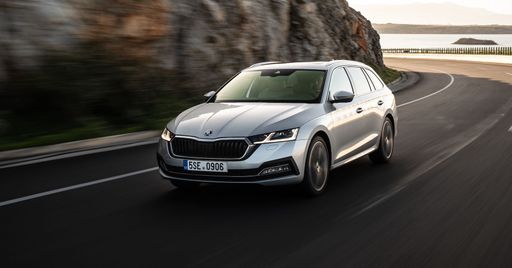 @ Škoda Auto a.s. / Škoda Storyboard
@ Škoda Auto a.s. / Škoda Storyboard
Skoda Octavia Combi
Costs and Consumption
View detailed analysis
Engine and Performance
View detailed analysis
Dimensions and Body
View detailed analysis
Kia Niro
The Kia Niro blends clever packaging and modern styling into a compact crossover that’s refreshingly sensible for daily life. It’s comfortable, economical and packed with user‑friendly tech, so if you want a fuss‑free family car with a touch of green credibility, the Niro is worth a test drive.
details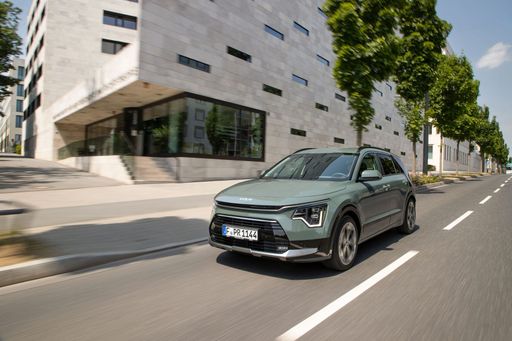 @ Kia Corporation
@ Kia Corporation
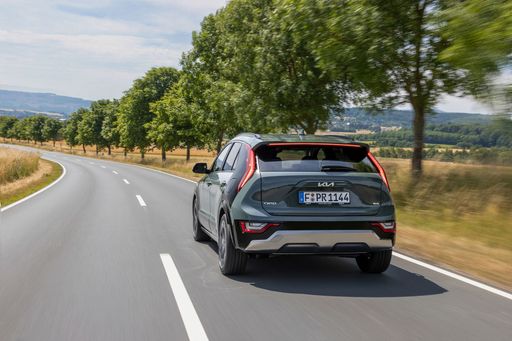 @ Kia Corporation
@ Kia Corporation
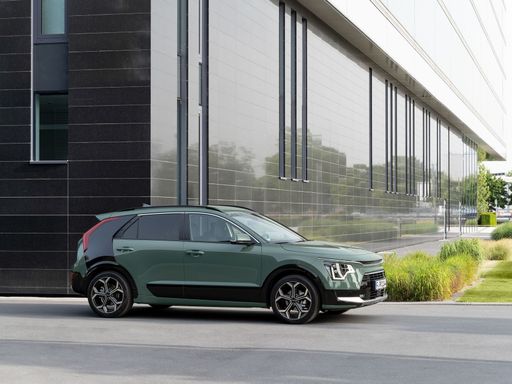 @ Kia Corporation
@ Kia Corporation
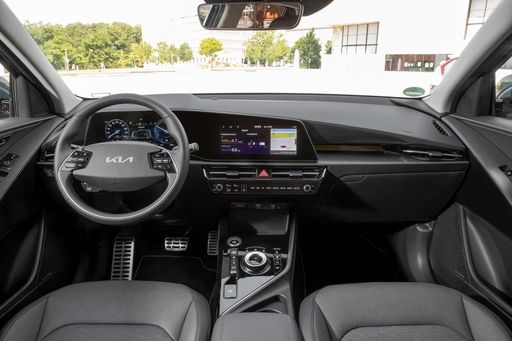 @ Kia Corporation
@ Kia Corporation
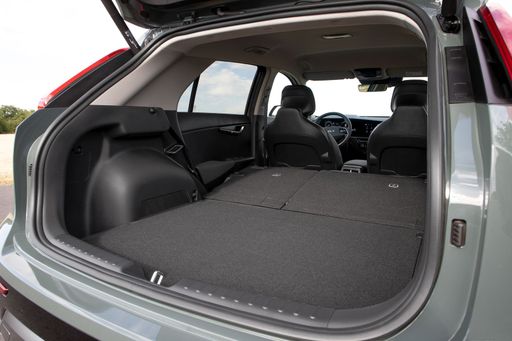 @ Kia Corporation
@ Kia Corporation
Skoda Octavia Combi
The Skoda Octavia Combi is the sensible family wagon that somehow turns grocery runs and long trips into a pleasant, unshowy experience — spacious, practical and built like it prefers reliability over flash. With smart touches, clever storage and a cabin that feels grown-up rather than frugal, it’s an easy recommendation for buyers who want maximum utility without sacrificing comfort or style.
details @ Škoda Auto a.s. / Škoda Storyboard
@ Škoda Auto a.s. / Škoda Storyboard
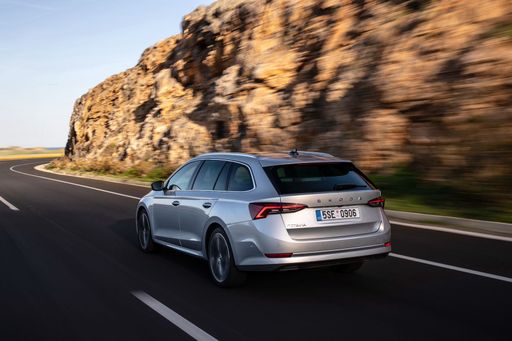 @ Škoda Auto a.s. / Škoda Storyboard
@ Škoda Auto a.s. / Škoda Storyboard
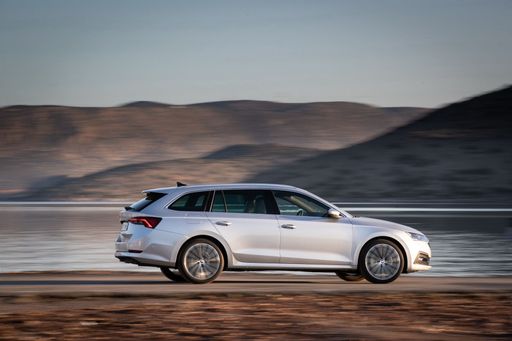 @ Škoda Auto a.s. / Škoda Storyboard
@ Škoda Auto a.s. / Škoda Storyboard
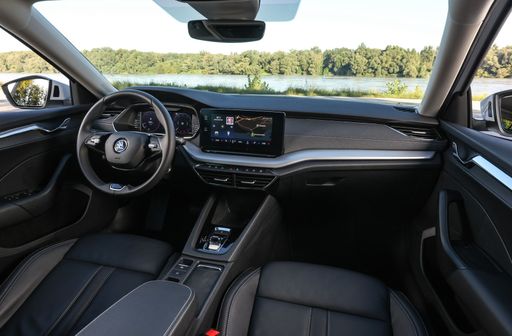 @ Škoda Auto a.s. / Škoda Storyboard
@ Škoda Auto a.s. / Škoda Storyboard
 @ Kia Corporation
@ Kia Corporation
|
 @ Škoda Auto a.s. / Škoda Storyboard
@ Škoda Auto a.s. / Škoda Storyboard
|
|
|
|
Costs and Consumption |
|
|---|---|
|
Price
29100 - 38600 £
|
Price
24400 - 42300 £
|
|
Consumption L/100km
2.4 - 4.9 L
|
Consumption L/100km
4.4 - 6.9 L
|
|
Consumption kWh/100km
-
|
Consumption kWh/100km
-
|
|
Electric Range
57 - 62 km
|
Electric Range
-
|
|
Battery Capacity
1.3 - 11.1 kWh
|
Battery Capacity
-
|
|
co2
53 - 111 g/km
|
co2
113 - 157 g/km
|
|
Fuel tank capacity
37 - 42 L
|
Fuel tank capacity
45 - 55 L
|
Dimensions and Body |
|
|---|---|
|
Body Type
SUV
|
Body Type
Estate
|
|
Seats
5
|
Seats
5
|
|
Doors
5
|
Doors
5
|
|
Curb weight
1474 - 1594 kg
|
Curb weight
1366 - 1553 kg
|
|
Trunk capacity
348 - 451 L
|
Trunk capacity
640 L
|
|
Length
4420 mm
|
Length
4698 - 4709 mm
|
|
Width
1825 mm
|
Width
1829 mm
|
|
Height
1545 mm
|
Height
1455 - 1468 mm
|
|
Max trunk capacity
1342 - 1445 L
|
Max trunk capacity
1700 L
|
|
Payload
466 kg
|
Payload
471 - 534 kg
|
Engine and Performance |
|
|---|---|
|
Engine Type
Full Hybrid, Plugin Hybrid
|
Engine Type
Petrol, Petrol MHEV, Diesel
|
|
Transmission
Automatic
|
Transmission
Automatic, Manuel
|
|
Transmission Detail
Dual-Clutch Automatic
|
Transmission Detail
Dual-Clutch Automatic, Manual Gearbox
|
|
Drive Type
Front-Wheel Drive
|
Drive Type
Front-Wheel Drive, All-Wheel Drive
|
|
Power HP
138 - 180 HP
|
Power HP
116 - 265 HP
|
|
Acceleration 0-100km/h
9.9 - 11.4 s
|
Acceleration 0-100km/h
6.5 - 10.7 s
|
|
Max Speed
170 - 185 km/h
|
Max Speed
203 - 250 km/h
|
|
Torque
265 Nm
|
Torque
220 - 370 Nm
|
|
Number of Cylinders
4
|
Number of Cylinders
4
|
|
Power kW
102 - 132 kW
|
Power kW
85 - 195 kW
|
|
Engine capacity
1580 cm3
|
Engine capacity
1498 - 1984 cm3
|
General |
|
|---|---|
|
Model Year
2025
|
Model Year
2024 - 2025
|
|
CO2 Efficiency Class
C, B
|
CO2 Efficiency Class
E, F, D, C
|
|
Brand
Kia
|
Brand
Skoda
|
Is the Kia Niro offered with different drivetrains?
The Kia Niro is available as Front-Wheel Drive.
The prices and data displayed are estimates based on German list prices and may vary by country. This information is not legally binding.
